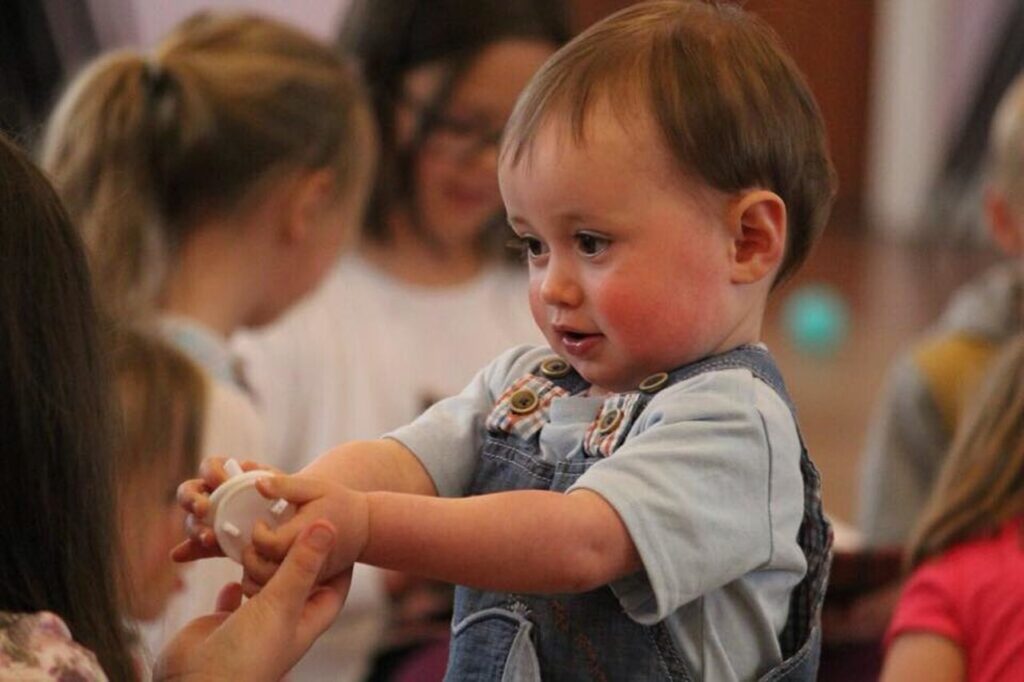Introduce
All children are entitled to the support they need to achieve the best possible outcomes. Their early years are crucial, and this stage of relationship attachments, learning and development has the most significant impact on a child’s future life chances.
This activity will help you to begin to recognise that for some children with development delay, this may mean they have special educational needs and/or disability (SEND) and may require additional or specialist support or services.
You will also begin to recognise that the development needs and strengths of all children are unique and will be influenced by their environment, background, and family circumstances.

Read: SEND and environmental considerations
Read this overview of the SEND and environmental considerations that may impact development in early childhood.
To ensure continued development, children need nurturing care, good nutrition, and support from caregivers, teachers, and health professionals, allowing them to reach their potential and thrive in life. However, this development is a complicated process. And in some children, the process may be more difficult or disrupted. Impairments in a child’s function, because of a health condition, can disrupt one or more areas of development, making it more difficult to learn new skills.
These impairments may include sensory difficulties, such as those affecting sight or hearing, and long-term health conditions such as asthma, diabetes, epilepsy, and cancer. Children with such conditions do not necessarily have SEN, but there is a significant overlap between disabled children and young people and those with SEN. Where a disabled child or young person requires special educational provision, they will also be covered by the SEN definition. These impairments can cause the process of development to falter.
Environmental factors, such as family and community, can also contribute to the way a child develops. Family factors include deprivation, the behaviour, health and education of the caregivers, and the impact of adverse childhood experiences (ACEs.) Community factors include educational facilities and neighbourhood influences. All these factors combine to create a unique set of needs for each child and can have an increased impact on children with SEND.
Develop
Taking an inclusive approach to supporting young children is important in identifying and enabling the provision that they need to develop the best possible outcomes.
This activity will help you to begin to recognise that for some children with development delay, this may mean they have special educational needs and/or disability (SEND) and may require additional or specialist support or services.
You will also begin to recognise that the development needs and strengths of all children are unique and will be influenced by their environment, background, and family circumstances.

Observing and interacting with young children can help anyone working with or supporting families to recognise if SEND considerations may be impacting on development.
Early intervention can help to ensure that the needs of all young children are met at this crucial stage of their development.
In their Development Matters Report, the Department for Education highlights the importance of early identification and intervention in supporting young children with SEND and environmental factors, to ensure equal and equitable provision:
- All children deserve to have an equal chance of success.
- High-quality early education is good for all children. It is especially important for children from disadvantaged backgrounds.
- When they start school, children from disadvantaged backgrounds are, on average, 4 months behind their peers. We need to do more to narrow that gap.
- Children who have lived through difficult experiences can begin
to grow stronger when they experience high quality early education and care. - High-quality early education and care is inclusive. Children’s special educational needs and disabilities (SEND) are identified quickly. All children promptly receive any extra help they need, so they can progress well in their learning.
- Department for Education, Development Matters Report, September 2023, p. 8.
There are many different local government and charitable organisations that can help you to support children with SEND and other needs, and their families.
Contact your local authority or visit their website to find up-to-date information and advice.
Reflect

Stop and Reflect:
Based on the content above, reflect on the following:
- How can you take an inclusive approach to supporting the development of young children?
- How can your interactions with young children and families help to recognise if SEND or other considerations are impacting development?
- Who could you contact to ask for support and advice in relation to SEND requirements?
- How can you work with others to support young children and their caregivers to ensure that any additional requirements are being met?
Further Resources
- Special Educational Needs and Disability Code of Practice: 0-25 years Department of Education, 2015
- This document guides you through the legislation and explains the actions that should be taken for providers and professionals to meet their duties in relation to identifying and supporting all children and young adults with special educational needs (SEN), whether or not they have an Education, Health Care Plan:






